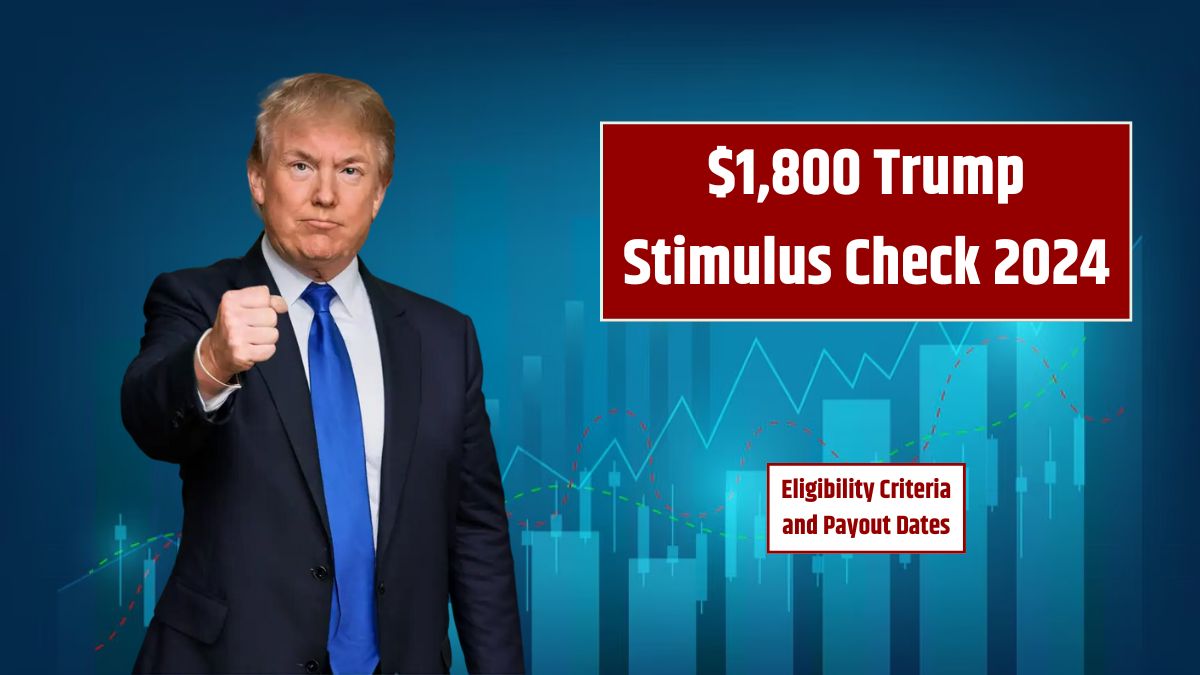A possible $1,800 Trump stimulus check in 2024 has been creating quite a buzz across the country. And let’s be honest, with rising living costs and inflation still putting pressure on households, who wouldn’t be interested? While it’s not a done deal yet, there’s a lot to unpack about how it might work, who could be eligible, and what you should be doing right now to stay prepared if this economic relief actually rolls out.
Background
Why are people talking about a new Trump stimulus check? Well, the conversation has picked up again due to the lingering effects of the pandemic and economic strain many Americans are still feeling. Former President Trump has alluded to supporting direct payments in his political discussions, especially with the 2024 elections in sight. While there’s no official stimulus bill yet, the idea is gaining traction, and people are watching closely.
Purpose
So, what’s the point of a stimulus check anyway? Think of it like a jump-start for the economy. During hard times, like a pandemic or financial crisis, the government steps in with direct payments to help people stay afloat.
Here’s what it does:
- Encourages people to spend money, which helps businesses and keeps the economy moving.
- Provides a safety net for families struggling to pay for rent, food, and other essentials.
- Sends a message that the government is stepping in to support the public.
In short, it’s a financial cushion to help people breathe a little easier.
Eligibility
Wondering if you’d qualify for the $1,800 check? Here’s what we can expect based on previous rounds:
Income Limits
- Individuals making under $75,000 could qualify for the full amount.
- Those earning up to $99,000 might receive a smaller payment.
- Married couples filing jointly might qualify if their combined income is under $150,000.
Dependents
- Families could receive more based on the number of dependents.
- Previous checks gave $500 to $1,400 per dependent, and this one could follow a similar pattern.
Special Groups
- Non-filers, veterans, and Social Security recipients might also qualify automatically, like in past programs.
Here’s a quick table to visualize it:
| Filing Status | Income for Full Payment | Partial Payment Threshold |
|---|---|---|
| Single | Under $75,000 | Up to $99,000 |
| Married (Joint) | Under $150,000 | Up to $198,000 |
| Head of Household | Under $112,500 | Up to $136,500 |
Timeline
No dates are on the calendar yet, but here’s how the process would likely unfold if the stimulus is approved:
- Congress drafts and passes a relief bill.
- The President signs it into law.
- The IRS updates systems and begins disbursing payments.
If history repeats itself, checks could start going out 2 to 3 months after the law is signed. Payments usually begin with direct deposits, followed by mailed checks and prepaid debit cards.
Preparation
Even though nothing’s guaranteed, there are smart moves you can make now:
- File your taxes – Your tax return is the IRS’s main tool for calculating your payment. Make sure you’ve filed for 2023 and reported any dependents.
- Update IRS info – If you’ve changed banks or moved, make those updates through the IRS Get My Payment tool.
- Watch for scams – Be cautious. The IRS doesn’t text, call, or email about stimulus checks.
- Check reliable sources – Stick to IRS.gov or official federal sites for updates.
Missed
If you didn’t get a previous stimulus check, you might still be eligible to claim it. It’s called the Recovery Rebate Credit, and you can request it when you file your tax return. Don’t let that money slip through the cracks.
Whether the $1,800 Trump stimulus check becomes reality or not, staying informed puts you in the best position to receive financial help if it’s available. Keep your tax details current, be cautious of scams, and follow only official government announcements. Relief could be just around the corner—stay ready.
FAQs
Is the $1,800 check confirmed?
No, it’s still a proposal with no approved law yet.
Who could get the stimulus check?
Likely low to moderate income individuals and families.
When might payments start?
Possibly 2-3 months after a bill is passed.
Do I need to file taxes to qualify?
Yes, filing taxes helps determine eligibility.
Can I still claim old stimulus checks?
Yes, through the Recovery Rebate Credit on your tax return.






